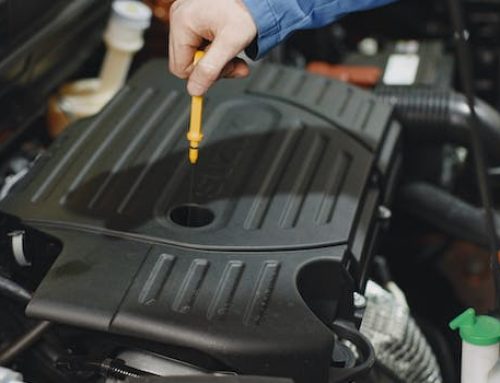5 Signs Your Car Needs a Tune-Up: Tips for Maintaining Your Vehicle's Performance
Introduction
Your car is a complex machine with numerous components working together to provide a smooth and reliable driving experience. To ensure your vehicle continues to perform at its best, regular maintenance is essential. Service Haus Automotive is here to guide you through the signs that your car may need a tune-up, offering tips for maintaining your vehicle’s performance and longevity.
- Decreased Fuel Efficiency
One of the first signs that your car may need a tune-up is a noticeable decrease in fuel efficiency. If you find yourself making more frequent trips to the gas station or notice a significant drop in miles per gallon, it’s time to investigate. A decrease in fuel efficiency can be caused by a variety of factors, including a clogged air filter, malfunctioning oxygen sensors, or issues with the fuel injectors. A comprehensive tune-up can address these issues and improve your car’s fuel economy.
- Poor Acceleration and Power
If you’ve noticed that your car is sluggish when accelerating or lacks the power it once had, it’s a clear indication that a tune-up is in order. Problems with the ignition system, such as worn-out spark plugs or a malfunctioning ignition coil, can lead to poor acceleration and decreased power. A tune-up involves inspecting and replacing these components, ensuring your engine operates at peak performance and responsiveness.
- Unusual Noises
Strange noises coming from your car are often an early warning sign of underlying issues. If you hear knocking, pinging, or rattling sounds, it could indicate problems with the engine or exhaust system. These noises may result from issues such as carbon buildup, worn-out belts, or loose components. A thorough tune-up can identify and address these problems, preventing more extensive damage and ensuring a quieter and smoother ride.
- Difficulty Starting the Engine
Experiencing difficulty starting your car, especially in the morning or after it has been parked for a while, is a clear sign that your vehicle needs attention. The culprit could be a faulty ignition system, a weak battery, or a malfunctioning starter. A tune-up involves testing and replacing these components as needed, ensuring reliable starts every time you turn the key.
- Vibrations or Rough Idling
Smooth and steady idling is a hallmark of a well-maintained engine. If you notice vibrations, rough idling, or a shaky steering wheel while your car is at a standstill, it’s time for a tune-up. Common causes of these issues include clogged fuel injectors, dirty throttle bodies, or problems with the engine’s timing. Addressing these issues through a tune-up not only improves idling but also enhances overall driving comfort and stability.
Tips for Maintaining Your Vehicle’s Performance
In addition to recognizing the signs that your car needs a tune-up, adopting a proactive approach to maintenance can significantly extend the life of your vehicle and improve its performance. Here are some essential tips:
- Follow the Manufacturer’s Maintenance Schedule
Every vehicle comes with a manufacturer-recommended maintenance schedule outlined in the owner’s manual. Adhering to this schedule ensures that essential components are inspected and replaced at the appropriate intervals, preventing potential issues and maintaining optimal performance.
- Regularly Check Fluid Levels
Fluids play a crucial role in your car’s performance and longevity. Regularly check and top up essential fluids such as engine oil, transmission fluid, brake fluid, and coolant. Clean and sufficient levels of fluids contribute to smooth operation and prevent unnecessary wear and tear on various components.
- Inspect and Replace Air Filters
Air filters prevent dirt and debris from entering the engine, ensuring clean air for combustion. Over time, air filters become clogged, affecting engine performance and fuel efficiency. Regularly inspect and replace air filters to maintain optimal air flow and combustion within the engine.
- Address Warning Lights Promptly
Modern cars are equipped with sophisticated onboard diagnostics systems that monitor various aspects of vehicle performance. If a warning light illuminates on your dashboard, don’t ignore it. Addressing issues promptly can prevent further damage and costly repairs, contributing to overall vehicle health.
- Choose Quality Fuel
The quality of fuel you use can impact your car’s performance. Using high-quality fuel with the appropriate octane rating recommended by the manufacturer ensures efficient combustion and helps prevent carbon buildup in the engine. Additionally, it can contribute to better fuel efficiency and engine responsiveness.
Conclusion
Your car’s performance is a reflection of its overall health, and recognizing the signs that it needs a tune-up is crucial for maintaining reliability and efficiency. By staying vigilant and addressing issues promptly, you can enjoy a smoother driving experience and extend the lifespan of your vehicle. For professional tune-up services and expert advice on maintaining your vehicle’s performance, trust Service Haus Automotive to keep your car in top condition. Remember, a well-maintained car not only performs better but also provides peace of mind on the road.

